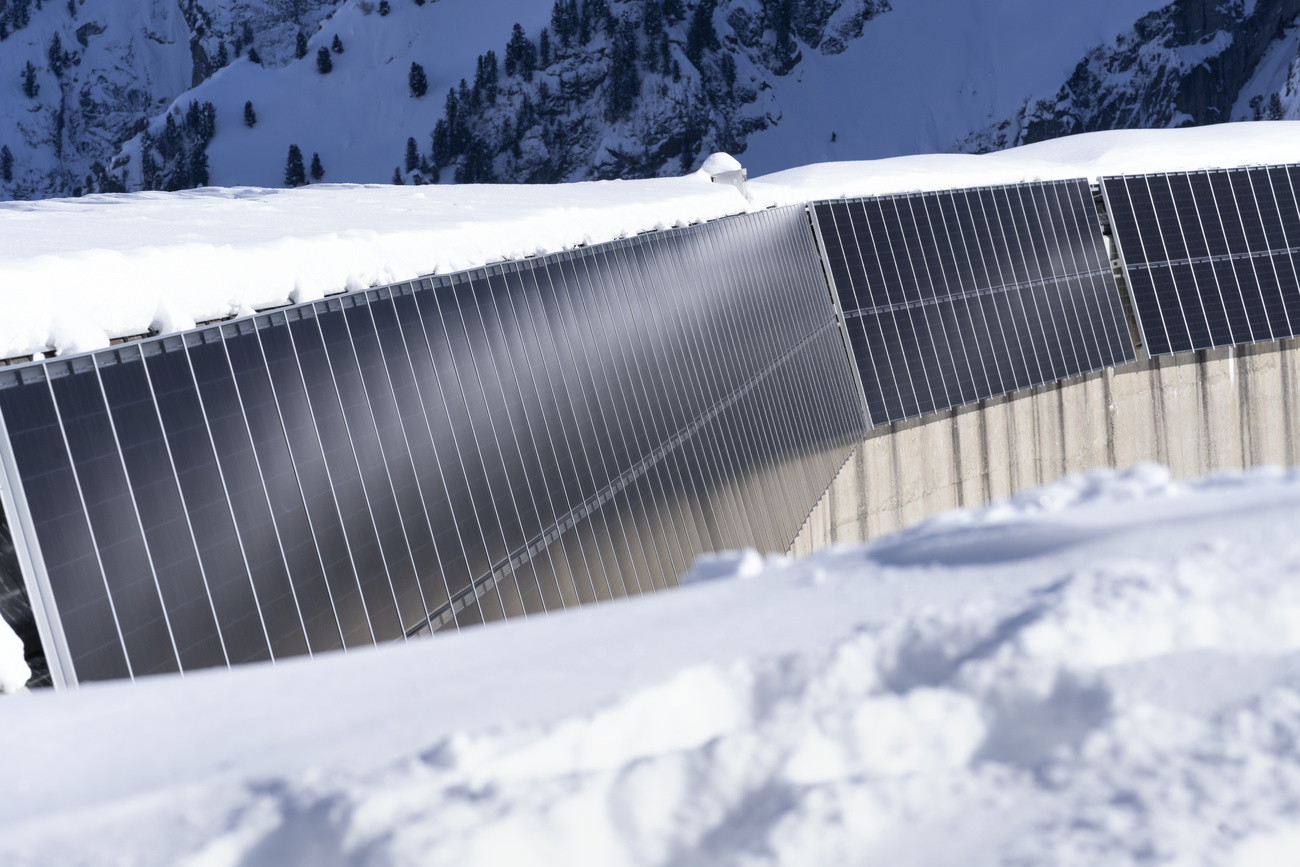
Swiss among last to embrace wind and solar power

Switzerland is lagging behind most European countries when it comes to solar and wind power. In terms of per capita production, it ranks second to last in comparison with surrounding countries, according to the Swiss Energy Foundation (SES).
The foundation, which published its findings on Thursday, is urging politicians to act if they want Switzerland to achieve its climate goals and guarantee security of supply.
The “CO2 law debacle”, noted the foundation, made it clear that the next big climate policy lever – the revision of the energy law – urgently needs to be well prepared. On Sunday, Swiss voters rejected an overhaul to the CO2 law which was central to the government’s goal of meeting its obligations under the Paris Accord on Climate Change.
Climate change dominated national elections in October 2019, with the Green Party notably coming out with gains. However, Sunday’s rejection of the CO2 law, along with two other environmental issues, marked a step back for the Alpine nation.
Under its system of direct democracy, a citizen-launched effort to curb greenhouse gases – the Glacier Initiative – is due to come to vote in the next years.
Far behind
In a short study, SES compared the per capita production of solar and wind energy in Switzerland and the 27 countries of the European Union (plus Great Britain). In this ranking, Switzerland lands in 24th place, just ahead of the Czech Republic, Hungary, Slovenia, Slovakia and Latvia.
In comparison with the nine surrounding countries, Switzerland lands in penultimate place. Only 4.7% of electricity consumption in Switzerland is generated with the two renewable technologies, according to the press release. In Denmark, for example, that figure is 54%.
Denmark, followed by Sweden and Ireland, lead the way in the 2020 country comparison in terms of electricity production from solar and wind power per inhabitant. Last year, Germany was pushed down to fourth place by Ireland.
Increase expansion targets
According to SES, the new energy law must clearly increase the expansion targets for solar and wind energy so that they are in line with climate targets. For example, annual production from new renewable energies should be increased by 35 to 45 terawatt hours by 2035. This would correspond to an increase by a factor of 12 to 17 compared to today’s production.
The House of Representatives approved a bill on Wednesday to promote new wind energy, small hydropower, biogas, geothermal and photovoltaic plants with one-off investment contributions from 2023. This is a transitional solution. The bill now goes to the Senate.
The bulk of electricity from Swiss sockets come from another kind of renewable energy source: large-scale hydropower, according to the Federal Office of Energy.

More
Swiss get 75% of power from renewable sources

In compliance with the JTI standards
More: SWI swissinfo.ch certified by the Journalism Trust Initiative



























You can find an overview of ongoing debates with our journalists here . Please join us!
If you want to start a conversation about a topic raised in this article or want to report factual errors, email us at english@swissinfo.ch.